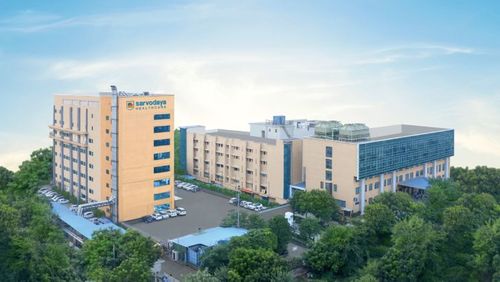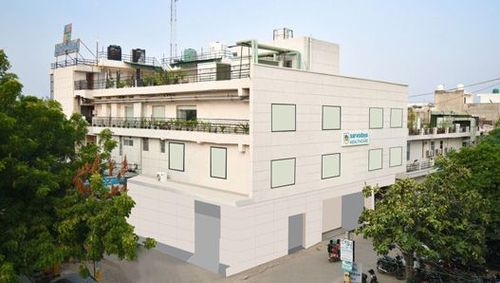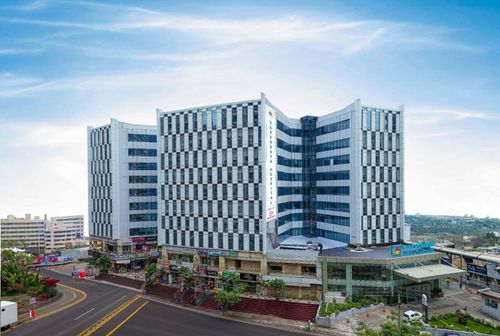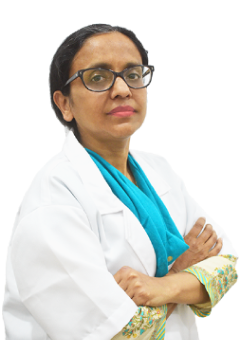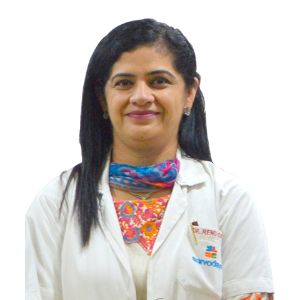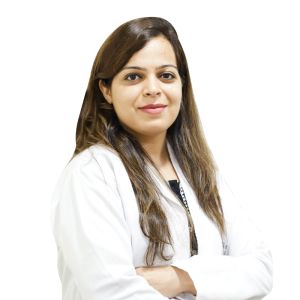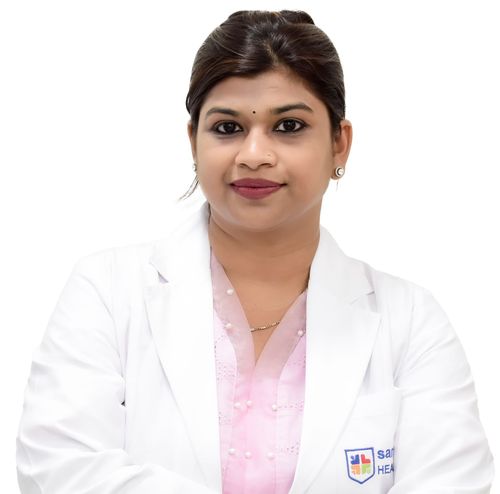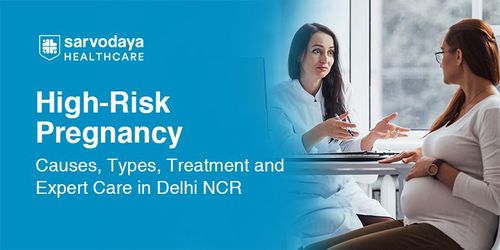Overview
A high-risk pregnancy means there is a greater chance that either the mother, her baby, or both may face health challenges during pregnancy or childbirth. Causes can include medical conditions, infections, traumas, or complications linked to previous pregnancies.
At Sarvodaya Hospital, the high risk pregnancy treatment we offer is highly specialised, giving both mother and baby the safest start possible in a supportive, modern environment. Our Centre for Obstetrics and Gynaecology Hospital in Faridabad, Delhi NCR, specialises in managing high-risk pregnancies, offering expert care and advanced support at every stage.
Symptoms of High Risk Pregnancy
- Vaginal bleeding or abnormal discharge
- Severe or persistent abdominal pain or cramping
- Decreased or absent fetal movements
- Persistent severe headache or changes in vision
- Shortness of breath, chest tightness, or chest pain
- Excessive fatigue, fainting, or lightheadedness
- Swelling in the face, hands, or legs
- High fever (more than 38°C)
- Painful or burning sensation during urination
- Severe nausea and vomiting that affects daily activities
Causes of High-Risk Pregnancy
- Maternal age below 18 or above 35 years
- Autoimmune or genetic disorders
- Previous pregnancy complications (preterm birth, preeclampsia, stillbirth)
- Multiple gestation (twins/triplets)
- Obesity or being underweight
- Smoking, alcohol, or substance abuse
- Poor prenatal nutrition
- Infections (e.g., HIV/AIDS, urinary tract infections)
- Use of fertility treatments
- Uterine or cervical abnormalities
- History of surgery on the uterus
Diagnosis of High-Risk Pregnancy
Diagnosing a high-risk pregnancy at Sarvodaya Hospital involves a structured, detail-oriented approach to keep both mother and baby safe from the earliest stages. By combining advanced technology with close, ongoing assessment, our High Risk Pregnancy Specialists ensure early identification of potential complications, allowing for timely intervention and peace of mind.
- Detailed medical, obstetric, and family history: We take a comprehensive look at your health, previous pregnancies, and any family history of complications to pinpoint risk factors from the outset.
- Advanced imaging (ultrasound, Doppler, fetal echocardiography): State-of-the-art ultrasound, Doppler studies, and foetal heart scans provide clear insight into your baby’s growth, blood flow, and heart development for early problem detection.
- Laboratory tests: Routine blood and urine checks, as well as targeted screening for infections, help catch anaemia, gestational diabetes, urinary tract infections, and other conditions early.
- Monitoring of blood pressure, blood sugar, and growth of the fetus: Frequent checks safeguard against hypertensive disorders, diabetes, and ensure your baby’s growth and development remain on track throughout your pregnancy.
- Genetic screening and counseling: For relevant cases, we offer genetic testing and counseling to identify potential hereditary conditions, allowing families to make informed decisions and receive tailored care.
- Serial fetal monitoring tests (NST, BPP) to assess well-being: Regular Non-Stress Tests (NST) and Biophysical Profile (BPP) track your baby’s movements, heart rate, and overall health, helping make timely decisions for optimal outcomes.
Treatment for High-Risk Pregnancy
- Strict maternal and fetal monitoring: We ensure closely timed antenatal appointments, advanced ultrasound scans, and continuous foetal heart monitoring to detect early signs of concern and provide timely intervention.
- Medications to control chronic conditions: Our specialists prescribe and carefully manage medications for blood pressure, diabetes, and infections, reducing risks for both mother and baby throughout the pregnancy.
- Nutritional counselling and supplementation: Individualised diet plans, guided by experienced nutritionists, address your unique needs and include essential supplements like iron, calcium, and folic acid to promote healthy development.
- Early detection and prompt management of pregnancy complications: Our team is skilled in identifying early warning signs and acting quickly to treat conditions such as preeclampsia or signs of preterm labour, using both medical and supportive interventions.
- Counselling and psychological support: Emotional well-being is central to your care. Our team offers regular counselling sessions, stress management tools, and guidance for families to help you feel supported and empowered throughout your pregnancy journey.
Prevention & Lifestyle Modification of High Risk Pregnancy
Taking proactive steps can make a significant difference in managing a high-risk pregnancy. At Sarvodaya Hospital, our team of High Risk Pregnancy Doctors in Faridabad, Delhi NCR, believes in empowering you and your family with the knowledge and support needed for a safer, healthier journey.
- Attend all scheduled prenatal appointments: Regular check-ups help us monitor your health and your baby’s development, enabling early detection and prompt management of any concerns.
- Maintain a healthy, balanced diet: Eating well and following your doctor’s advice on supplements provides essential nutrients for both mother and baby, supporting growth and reducing risks.
- Exercise regularly: Gentle physical activity, when approved, can boost circulation, mood, and general well-being; your doctor will guide you on safe routines.
- Avoid smoking: Steering clear of these substances greatly reduces complications and helps ensure the healthiest possible outcome for you and your baby.
- Practice stress reduction: Pregnancy, especially a high-risk one, can be emotionally challenging. Don’t hesitate to seek help, our counsellors and support staff are here for you at every stage.
Pre and Post High-Risk Pregnancy Treatment Lifestyle Modifications
Pre-Treatment:- Schedule a thorough pre-pregnancy or early pregnancy health check-up
- Start or adjust your medications for chronic conditions (like diabetes, hypertension, or thyroid problems):
- Focus on a balanced, nutrient-rich diet and healthy weight management:
- Educate yourself and your family about symptoms such as severe headache, bleeding, persistent pain, or decreased fetal movement, so you know when to seek urgent help.
- Seek guidance or counselling if you feel anxious about your pregnancy, and keep emergency contacts handy.
- Follow all post-delivery medical advice closely
- Watch for redness, swelling, heavy bleeding, high fever, or severe pain; report anything unusual to your doctor right away.
- Return to daily routines and exercise only as advised, giving your body time to heal.
- Continue your specialised diet and any recommended rehabilitation exercises
- Regular reviews allow for early detection of issues and support ongoing care.
- Reach out to our team or support groups for help with stress, mood changes, or the adjustment to parenthood.


